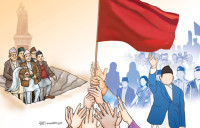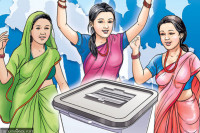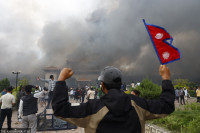Opinion
We’ve had enough
The new constitution should empower Dalits and break the legacy of discrimination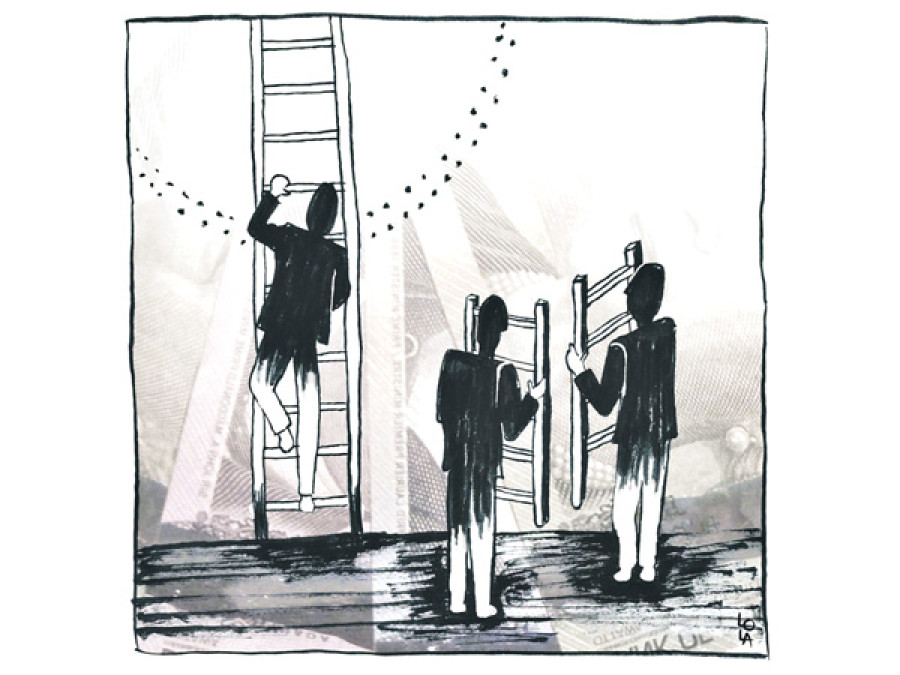
Dhana Bahadur Mijar
Following the devastating earthquake of April 25, the major political parties seem to have realised that Nepal’s long-standing political deadlock should be resolved and that they should quickly reach an agreement to complete the constitution. The Nepali people have been having a hard time due to the disaster. At this critical juncture, the 16-point deal made by the political parties was crucial in the sense that it helped the constitution-drafting process move forward and could bring the peace process to a logical conclusion, thereby addressing the people’s aspirations for development and prosperity.
Failing us again
While the provisions in the draft constitution are being widely discussed and commented upon, the Dalits are much worried whether it will ensure their rights or not. Since the time of the first Constituent Assembly (CA), Dalit leaders have been working to get their basic agenda, rights, voices and choices inserted in the new constitution to achieve the dream of equality and an equity-based prosperous society.
However, after carefully reading the draft constitution, one can clearly see that it is a step backwards compared to the Interim Constitution. The way seats have been allotted in Parliament under the proportional representation and first-pass-the-post systems, there will be fewer Dalit representatives than before.
Meanwhile, the National Dalits Commission is going to be made a constitutional body. This is a very good provision in the draft constitution. Likewise, the rights of Dalits have been included in the list of fundamental rights which is very crucial because it will not only discourage caste-based discrimination and untouchability, but also create a social environment for Dalits to hold their heads high. However, some good provisions that had been agreed by the draft sub-committee have been left out, for example, the additional three percent seats in the federal House of Representatives, additional five percent seats in the state parliament and the additional 10 percent quota at the local level. Overall, the draft constitution contains some good provisions for Dalits. But it does not say anything about appointing Dalits to the post of president, vice-president, prime minister, minister, chief justice and so forth.
Do these already
In this situation, the new constitution needs to incorporate the following provisions and break the legacy of discrimination. First, it should effectively implement the provision of right to dignified life, right against caste-based discrimination and untouchability and right of Dalits in practice and create a conducive environment for Dalits to live as in their own homeland.
Second, it should ensure 13 percent Dalit representation in the federal Parliament and reserve 43 seats at the state level in addition to the proportional representation seats. Third, it should ensure that a Dalit becomes president, vice-president, prime minister, spokesperson or deputy spokesperson in each administration for the next 50 years.
Likewise, the state has to adopt proportional principles and apply these principles effectively in the judiciary and other constitutional commissions. Dalits should get to participate proportionally in the Nepal Army, Nepal Police, Armed Police Force, Civil Service, Health Service, Engineering Service, Foreign Service, diplomatic missions, National Planning Commission, Nepal Rastra Bank, Earthquake Reconstruction Authority and other state mechanisms for the next 30 years. Further, capacity building and empowerment-related activities should be implemented for Dalits to empower them to fight against the historically privileged castes and classes. Lastly, Dalits should be given free and quality education up to the university level.
If we adopt such principles and practices by inserting them in the new constitution, Dalits can live a life of dignity, equality and equity.
Mijar is the publisher and editor of Parivartan Post and a Dalits’ rights activist




 14.12°C Kathmandu
14.12°C Kathmandu
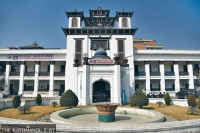
.jpg&w=200&height=120)
